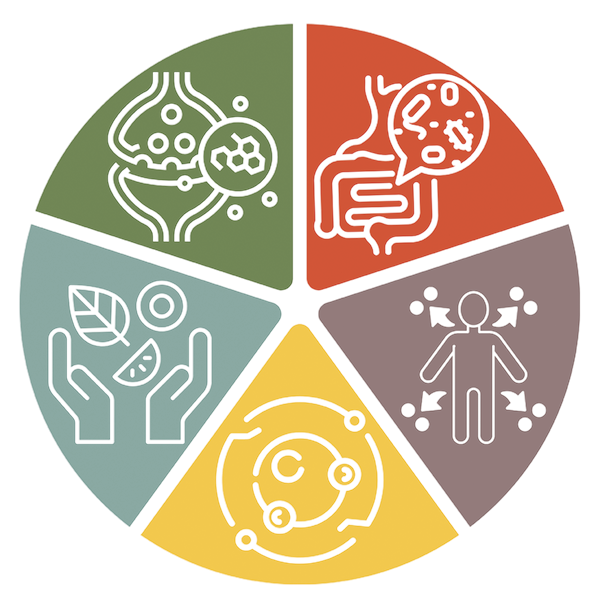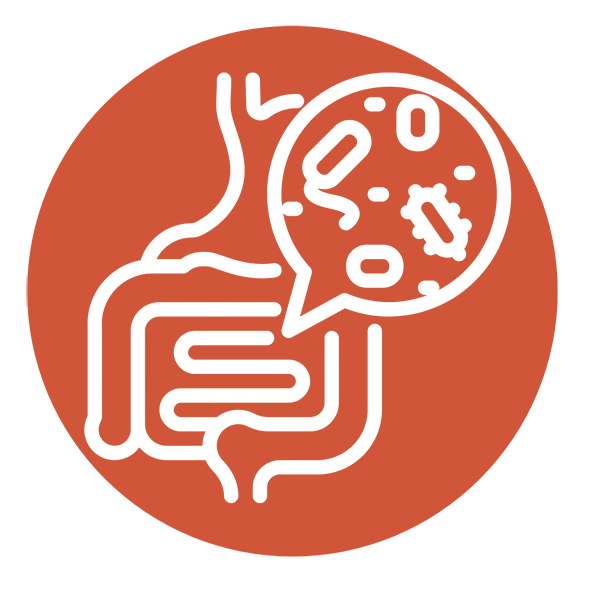Metabolic Insights Profile (Organic Acids)
Metabolic Insights Profile (Organic Acids)

At KBMO Diagnostics, we believe in going beyond the surface to identify the root causes of chronic illness. Our Metabolic Insights Profile (Organic Acids) looks at 5 key groups—metabolic function, detoxification capacity, microbial health, neurotransmitter balance, and more—all through a simple urine sample.
The MIP is a diagnostic tool designed to empower practitioners and patients with actionable data leading to personalized treatment strategies. Powered by the latest research in sample preparation and LC/MS/MS technology this novel test is the cutting edge of Organic Acids. It is Next Generation Organic Acid Testing.
Seamless Testing. Powerful Results.
Seamless Testing. Powerful Results.

KBMO’s MIP is not just a lab test—it’s a diagnostic tool designed to empower practitioners and patients with actionable data. Backed by peer-to-peer support and educational resources, our comprehensive reports help inform personalized treatment strategies.
Microbial Metabolites
The gut is crucial for digestion, immune health, and brain function, often called the body’s second brain. It produces important molecules that affect various bodily processes.
However, an overgrowth of harmful bacteria can release toxins into the bloodstream, disrupting overall health and highlighting the need for a balanced gut microbiome.
Pathogenic bacteria can disrupt the balance of beneficial bacteria that play a crucial role in regulating various systems throughout the body. Additionally, molds such as Aspergillus and Penicillium can colonize the body, particularly in areas like the gut and nasal passages. These molds may release mycotoxins, which can have harmful effects on health.

Detoxification Indicators
Glutathione is a crucial antioxidant that plays a significant role in the body’s detoxification processes. It helps eliminate a wide range of harmful chemicals and toxins, supporting the liver in its efforts to cleanse the body. By neutralizing free radicals and facilitating the excretion of heavy metals and other pollutants, glutathione is vital for maintaining overall health and preventing cellular damage. Monitoring the glutathione cycle is essential for effectively evaluating the body’s detoxification process and understanding the extent of toxic exposure it encounters.

Metabolism and Mitochondrial Function
The mitochondria serve as the powerhouse of the cell, playing a crucial role in energy production. Maintaining the proper functioning of mitochondria is vital for overall health, as their efficiency directly impacts the body’s energy levels, metabolism, and overall well-being.
A range of health issues can contribute to the dysfunction of mitochondria, which are the energy-producing structures within our cells. Some of these issues include inadequate nutrition, where a lack of essential vitamins and minerals can impair mitochondrial function. Additionally, a high toxic burden from environmental pollutants, heavy metals, and other harmful substances can damage mitochondrial health.
Chronic illnesses, such as metabolic disorders or autoimmune diseases, may also negatively impact mitochondrial performance. Monitoring these markers can assist in identifying underlying issues and aid practitioners in developing personalized treatment plans.

Nutrition Markers
Analyzing levels of fatty acids and ketones in the body can provide valuable insights into imbalances that may be associated with various health conditions, including cardiovascular diseases and inflammatory disorders. By understanding these metabolic profiles, healthcare providers can create tailored dietary and supplementation strategies that focus on enhancing fatty acid levels. This personalized approach not only aims to restore balance but also helps to mitigate the potential long-term health impacts resulting from these imbalances.
Oxalates
Oxalates can be found in a wide range of foods, including berries, nutrient-rich vegetables like spinach and beets, and healthy nuts and seeds. It is also found in popular beverages, including tea, coffee, and rich chocolate. When oxalate levels in the body become too high, they can contribute to the formation of kidney stones and other significant health problems. Oxalate is a naturally occurring organic acid that the human body can synthesize on its own. As oxalate can bind with minerals, it is important to monitor oxalate intake to maintain good health and well-being.

Neurotransmitter Metabolism
Neurotransmitters are produced in various parts of the body, including the central nervous system (CNS), the peripheral nervous system (PNS), and other areas such as the renal system. The relationship between neurotransmitter levels in the central nervous system (CNS) and their excretion is still being studied, and definitive results are not yet available. One important factor to consider is that the enzymes found in the CNS rely on the same cofactors for their activity. This overlap in cofactors may influence both neurotransmitter synthesis and metabolism, possibly affecting how neurotransmitters are processed and eliminated from the body. Understanding these dynamics could provide deeper insights into the regulation of neurotransmitter levels and their effects on neurological health. Increased levels of precursors may indicate underlying issues. Additionally, The ratio of vanilmandelate to homovanillate may reflect low expression or activity of dopamine beta-hydroxylase or other enzymes in the metabolic pathway.

Providing patients with individual data that is actionable and easy to understand.

When you order a test from KBMO Molecular Diagnostics, you will receive the most sensitive and accurate results but also:
- Peer-to-peer support
- Easy-to-use sample collection system
- Quickest turn-around times in the industry
- HIPAA protected practitioner’s portal
- Experienced sales executives
- Educational resources
- Scientist-developed and owned
- Scientists with 60 years of combined experience

